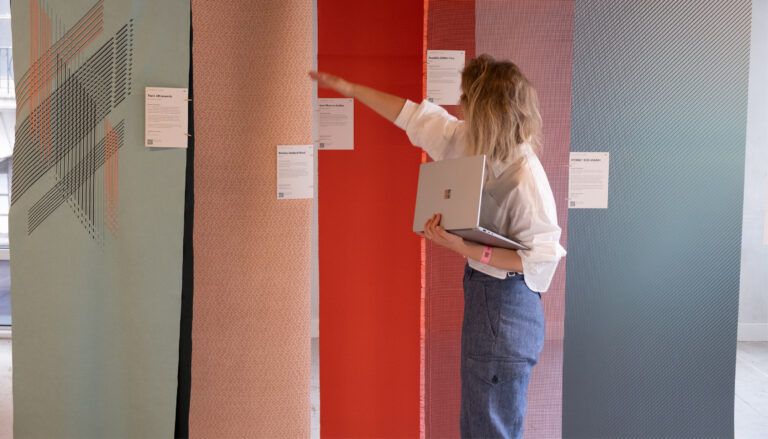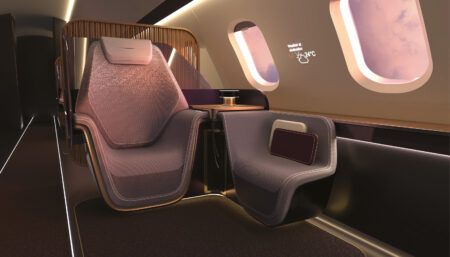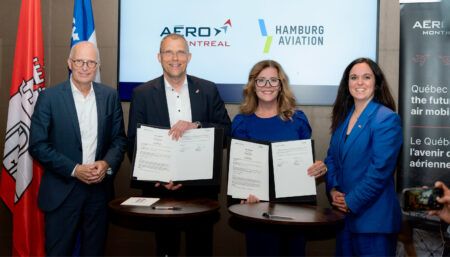PriestmanGoode exhibited for a third year at Material Matters, held during London Design Festival 2025. The company’s exhibit focused on sustainable material choices for aviation and rail designs; exploring how designers can drive systemic change by embedding sustainability into every stage of the design process.
Visitors could discover the evolution of Route to Zero, PriestmanGoode’s strategic framework for reducing environmental impact across sectors including transport and mobility.
The studio also unveiled the latest developments in Material Mind, an interactive database designed to help designers and clients navigate sustainable material choices with confidence. Alongside these resources, the installation featured responsibly sourced materials and the new Green Seat 2.0 rail seating concept, showcasing modular, lightweight and circular design principles in practice.
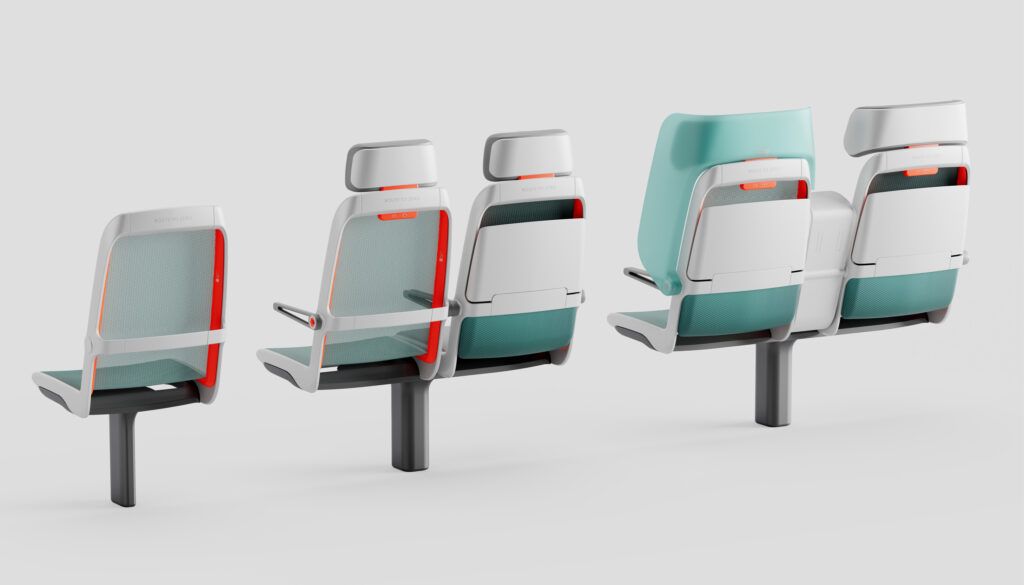
PriestmanGoode developed Route to Zero drawing on its extensive transport interior project experience. “Working with our clients in aviation and rail, we advocate for sustainability to be part of a project brief from the beginning, and be an underlying thread that is consciously considered throughout the process and lifetime of the final product,” explained Jo Rowan, associate director of strategy at PriestmanGoode.
Route to Zero is intended as an achievable design approach, factoring in aspects such as longevity, lightweighting, reductive design, repairability, repurposing, disassembly, alternative materials and more. The exhibition included cards on each of those topics, used in client workshops. “Using Route to Zero we have innovated across different categories to explore reductive, modular and circular design,” said Rowan.
PriestmanGoode’s Material Mind database – a system that facilitates comparisons and includes sustainable material specifications – also featured in the exhibition. Material samples from Tapis, Sekisui Kydex, Botany Weaving, GenPhoenix, Muirhead, Schneller and Franklin Products were a part of the display and also feature on Material Mind.
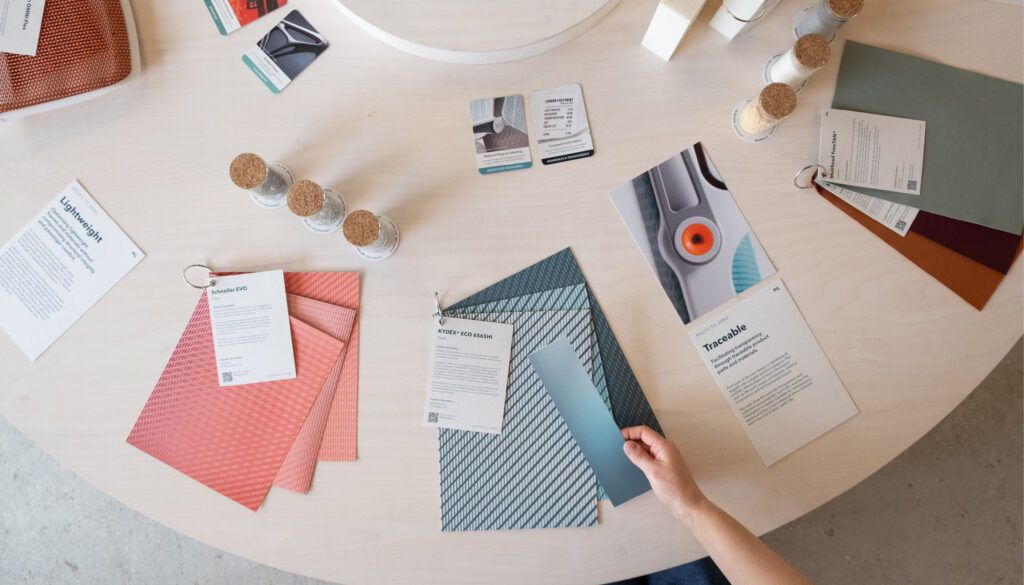
“To illustrate how the material supply chain is responding and connecting to both Material Mind and Route to Zero we feel very fortunate to be able to exhibit impressive material samples that include renewable plant-based fibres; thermoplastics that reduce climate impact and reduce waste placed in landfill, yet maintain durability; natural undyed materials that are achieved with reduced water, energy and chemicals; lightweight mesh-like materials that reduce the need for cushioning and bio-based protein foam,” said Maria Kafel-Bentkowska, associate director of CMF at PriestmanGoode.
Material Matters followed World Design Congress 2025 in London, which also included Route to Zero as part of the congress’s legacy content.
“PriestmanGoode is a proud supporter of the Design Council’s Skills for Planet mission, which aims to upskill one million designers with green skills by 2030,” said Kirsty Dias, MD of PriestmanGoode. “As a Steering Group member, we fed into the Skills for Planet Blueprint, which will be the springboard to deliver the legacy of World Design Congress. This is a generational opportunity to leverage the immense power that design holds to shape the world around us. Material Matters is a perfect opportunity to expand on that plan as the design community and other progressive thinkers gather for this important aspect of the London Design Festival.”


